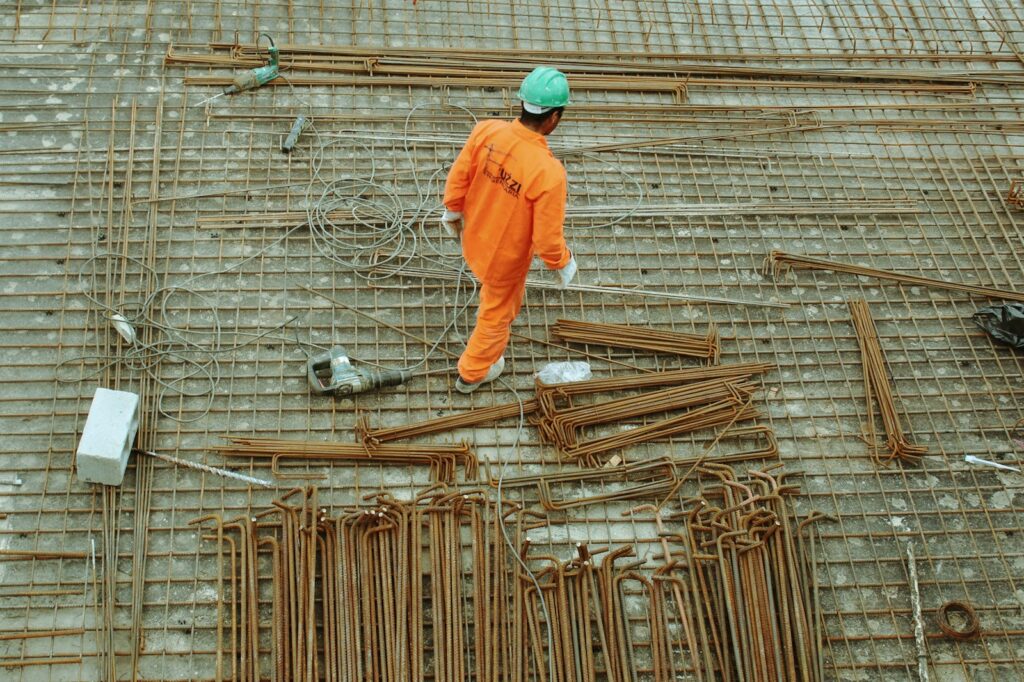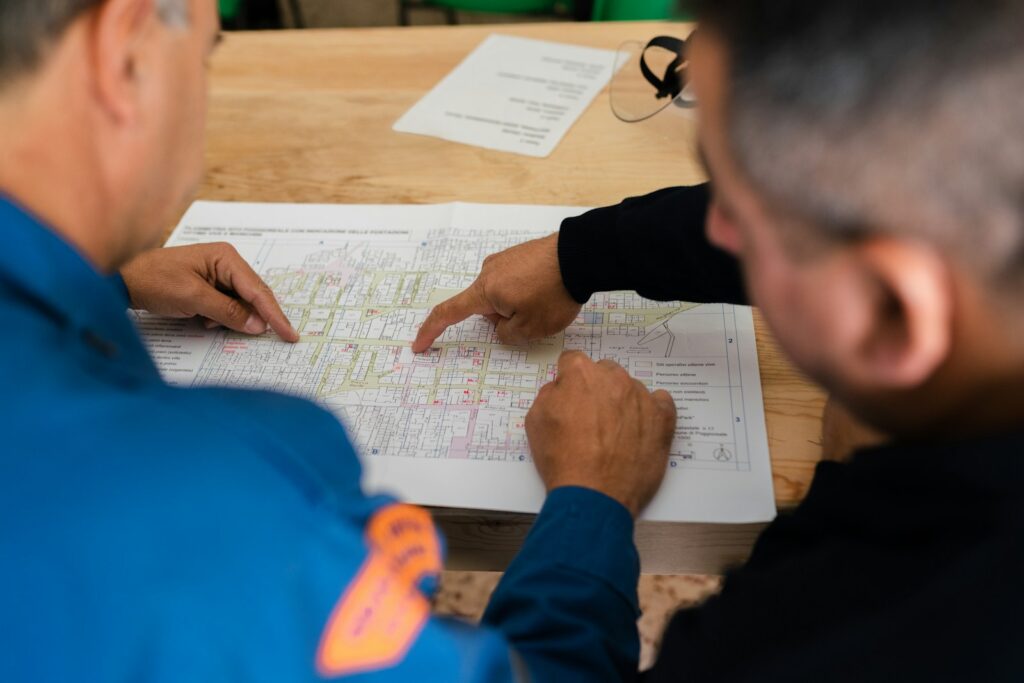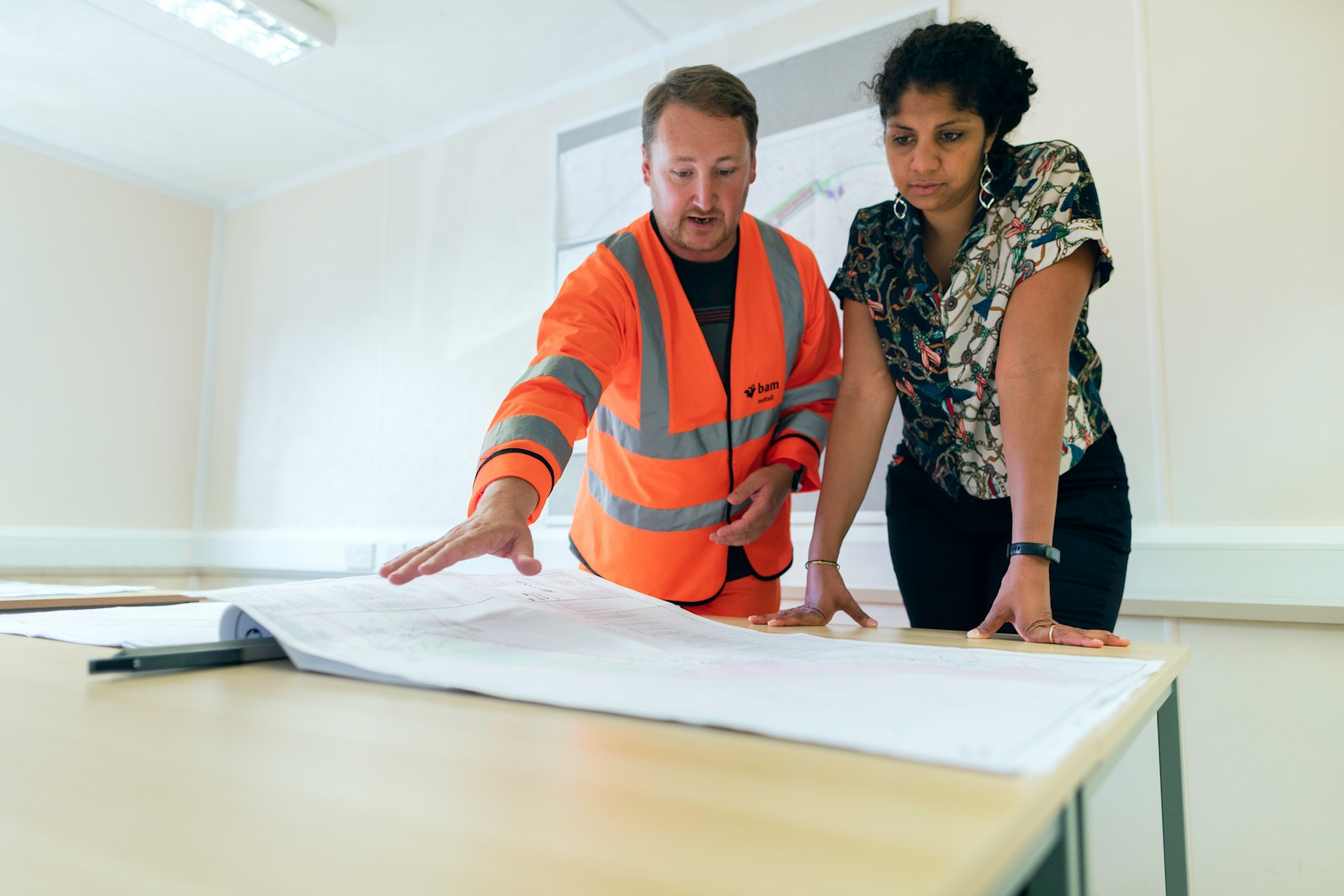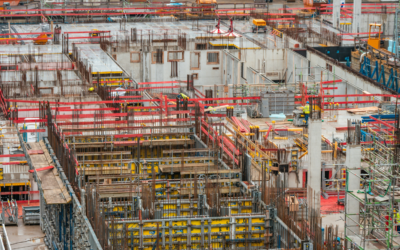What Is Construction Engineering and Why Does It Matter?
Construction engineering lies at the intersection of science, planning, and execution. It’s not just about building structures—it’s about creating efficient, safe, and functional spaces that shape the world around us. From skyscrapers to bridges, modern infrastructure relies heavily on innovative solutions from this discipline. Civil engineering lays the groundwork for the design and development of infrastructure, while construction engineering focuses on the practical implementation of these designs.
At its core, construction engineering combines technical expertise, problem-solving skills, and management principles to oversee the construction process. By balancing functionality, budget constraints, and stringent safety codes, construction engineers play a critical role in turning blueprints into reality.
For property developers and real estate professionals, understanding the nuances of construction engineering is key to creating sustainable, timely, and cost-effective projects. Enter South Coast Improvement Company—a trusted leader in delivering exceptional construction solutions while redefining client satisfaction.

Construction Engineers vs. Civil Engineers
In the construction industry, both construction engineers and civil engineers play pivotal roles, yet their responsibilities and focus areas differ significantly. Civil engineers are primarily concerned with the design and development of infrastructure projects. They work on creating the blueprints for roads, bridges, buildings, and other essential structures, ensuring that these designs meet all necessary safety and regulatory standards.
On the other hand, construction engineers take these designs and bring them to life. They oversee the entire construction process, from planning and scheduling to execution and completion. Their role involves meticulous project planning, cost estimation, and ensuring that the construction adheres to the specified quality standards and timelines. While civil engineers focus on the theoretical and design aspects, construction engineers are hands-on, managing the practical implementation of these designs.
Both professions are indispensable in the construction industry, working in tandem to ensure that infrastructure projects are not only well-designed but also effectively executed.
A Brief History of Construction Engineering
To truly appreciate the significance of modern-day construction engineering, it’s important to understand how far this field has evolved. From the pyramids of Egypt to the aqueducts of Rome, ancient construction relied heavily on manual labor and rudimentary tools. Yet, the creativity and precision of these historic marvels laid the groundwork for what we now call “construction engineering.
The rise of architectural sciences during the Industrial Revolution transformed the field, introducing the steel-and-concrete era. Fast forward to the 21st century, the industry has shifted once again—this time toward client-centered approaches, smarter building materials, advanced software, and cutting-edge planning methodologies, all aimed at improving efficiency and reducing the environmental impact of construction efforts.
South Coast Improvement embodies this evolution, offering construction expertise rooted in tradition while pioneering innovative methods to serve diverse industries.

The Role of Construction Engineers in Modern Construction Projects
Construction engineers wear multiple hats; their responsibilities include project planning, technical design, management supervision, and ensuring compliance with safety and building codes. Skilled professionals are crucial in the planning, execution, and management of construction projects to ensure successful outcomes.
Key Roles of Construction Engineers:
- Project Planning and Cost Estimation: Engineers work meticulously during the pre-construction phase to create accurate timelines and budgets. Tools like building information modeling (BIM) assist in visualizing project costs and duration. Specialized knowledge in construction estimating is essential as part of the curriculum to prepare students for effective project management and execution.
- Problem Solving: Whether it’s navigating material shortages or troubleshooting on-site technical challenges, construction engineers ensure projects run smoothly.
- Ensuring Compliance: Adhering to safety standards and local regulations is non-negotiable, and engineers are tasked with keeping projects in line with global compliance measures.
- Collaboration Across Teams: Construction engineers often liaise with architects, developers, and project managers to ensure that designs not only look good on paper but are also feasible to execute.
South Coast Improvement leverages these principles in their projects, using expert planning and adaptability to overcome any challenges that arise during construction.

Essential Skills and Educational Requirements for Construction Engineers and Construction Management
To succeed as a construction engineer, individuals need a blend of technical expertise, strategic thinking, and leadership skills.
Must-Have Skills:
- Technical Proficiency: Knowledge of building materials, structural design, and electrical systems.
- Project Management Expertise: Understanding construction processes, including resource allocation and schedule adherence.
- Critical Problem-Solving: Developing solutions for unexpected delays or budget overages.
- Communication Skills: Effectively coordinating with stakeholders at every stage of the construction process.
Educational Pathways:
- Bachelor’s Degree (e.g., Bachelor of Science in Construction Engineering): Offers foundational knowledge in construction methods, engineering solutions, and project management principles.
- Construction Engineering Degree: Provides a detailed curriculum encompassing planning, design, and management of construction projects, equipping students with essential technical and practical skills.
- Master’s Degree for Advanced Roles: Focused on specialized technical and management skills, ideal for those looking to become senior project engineers or construction planners.
- Construction Engineering Program: Emphasizes both foundational and advanced skills necessary for success in the construction industry, integrating civil engineering and construction management.
- Construction Management Program: Essential for developing the skills necessary to navigate the evolving challenges in the construction industry, preparing students for various aspects of construction engineering.
- Accreditation Matters: Look for programs endorsed by the Engineering Accreditation Commission to ensure rigorous, industry-aligned training.
- College of Engineering: Offers comprehensive curricula that integrate engineering with construction and management education, focusing on real-world applications and career opportunities.
With hands-on experience as a priority, students interested in the field are encouraged to pursue internships at innovative firms such as South Coast Improvement.

Construction Engineering Projects
Construction engineering projects encompass a wide array of undertakings, each requiring meticulous planning, design, and execution. These projects can range from small-scale residential buildings to massive infrastructure developments. Construction engineers are at the helm of these projects, ensuring that every phase is executed flawlessly.
Construction Engineering Technology
The application of advanced technology in construction engineering has revolutionized the way projects are planned, designed, and executed. Construction engineers leverage a variety of tools and software to enhance efficiency, accuracy, and collaboration throughout the construction process.
South Coast Improvement Company: A Trustworthy Construction Partner
South Coast Improvement Company stands as a shining example of excellence in construction engineering. With a strong focus on client satisfaction, preparedness, and professionalism, the company has achieved a stellar reputation in the construction industry.
Their unique Design-Build Service Package is what sets them apart. By combining design and construction under one accountable team, South Coast eliminates potential conflicts between architects and builders—ensuring projects are delivered seamlessly, cost-effectively, and with precision.
Why Choose South Coast Improvement Company?
- Client-Centric Approach: Every project begins with a tailored solution to meet client goals and visions.
- Award-Winning Expertise: South Coast received the 2022 Bronze Award for Building Construction from the Design-Build Institute of America.
- Proven Results: With a repeat business rate of 90% year after year, their track record speaks for itself.
Construction managers play a crucial role in overseeing various administrative tasks throughout a construction project, including scheduling, budgeting, and supervising subcontractors.
Case Studies and Success Stories
The field of construction engineering is filled with remarkable projects that showcase the expertise and innovation of construction engineers. Here are a few notable case studies that highlight the complexity and success of construction engineering projects:
The Advantages of Design-Build Services
The traditional construction process often splits responsibility between architects and construction teams, leaving clients to juggle communications between multiple stakeholders. South Coast Improvement’s Design-Build Model eliminates this inefficiency.
Key Benefits:
- Single-Source Accountability: From initial designs to construction completion, one team oversees every aspect.
- Faster Timelines: Simultaneous design and build operations streamline workflows and reduce project schedules.
- Cost Savings: Close collaboration minimizes unforeseen expenses.
- Teamwork, Not Tension: With open communication and shared accountability, client expectations are always exceeded.
The Future of Construction Engineering and the Value of a Construction Engineering Degree
Emerging technologies like artificial intelligence (AI), sustainable construction methods, and advanced data analysis tools are already shaping the future of construction.
Trends to Watch:
- AI and Building Information Modeling (BIM): Boosting efficiency in construction planning and resource management.
- Sustainable Practices: Green construction materials and energy-efficient designs are becoming standard.
- Career Opportunities: The construction industry is expanding rapidly, with the average salary for construction engineers surpassing $95,000 annually, according to labor statistics.
South Coast Improvement is at the forefront of these innovations, ensuring their clients capitalize on the latest advancements in construction technology.

Why Modern Construction Relies on Engineers and Brands Like South Coast
Whether you’re looking to revamp a commercial property or develop a residential building, construction engineering is the backbone of a successful project. By relying on experienced professionals and innovative processes like South Coast Improvement’s Design-Build Service, property developers and real estate professionals can ensure their portfolios truly stand out.
Curious about what South Coast Improvement can do for your next construction project? Get in touch today and unlock your building’s potential with precision, efficiency, and expertise.
Learn More About Construction Engineering
Construction engineering is a dynamic field that combines technical innovation with practical solutions to bring architectural visions to life. Below are some resources to help you explore this exciting industry further:
- What is Construction Engineering? – Learn the fundamentals of construction engineering and its critical role in shaping modern infrastructure. Read more here
- Innovations in Construction Technology – Discover the latest technological advancements driving efficiency and sustainability in construction. Explore innovations
- Benefits of the Design-Build Process – Understand how the design-build method streamlines communication and enhances project outcomes. Learn about Design-Build
- South Coast Improvement’s Approach – See how South Coast Improvement Company incorporates cutting-edge practices to deliver exceptional results. Visit South Coast Improvement
- Importance of Sustainable Building Practices – Learn why incorporating sustainability into construction projects is essential for reducing environmental impact and promoting long-term resilience. Discover sustainable practices
- The Role of Virtual Design and Construction (VDC) – Explore how VDC technologies are transforming project visualization, collaboration, and efficiency in modern construction. Find out more about VDC
- Advancements in Prefabrication and Modular Construction – Uncover the benefits of prefabrication and modular techniques in reducing construction time and waste while improving quality. Read about modular construction
- The Impact of Artificial Intelligence in Construction – Discover how AI is revolutionizing construction workflows, from predictive analytics to automating routine tasks, enhancing productivity and safety. Learn about AI in construction
- The Rise of Smart Building Technologies – Investigate how IoT and smart systems are enabling buildings to be more energy-efficient, sustainable, and user-friendly. Dive into smart buildings
These resources provide a deeper insight into the complexities of construction engineering and how companies like South Coast Improvement lead the industry toward excellence.
View Our Work
Aspen Dental
Partnering with The Aspen Group on the construction of a new Aspen Dental facility that’s functional & welcoming for patients & staff alike. South Coast Improvement Company was awarded the construction of a new Aspen Dental facility in Killingly, CT. The...
Springhouse Senior Living – HumanGood
Designed to enhance comfort & functionality. South Coast Improvement company was hired by HumanGood for an interior and exterior renovation at Springhouse Senior Living. Our skilled teamtransformed the 2nd through 5th floor common areas into brighter, more...






